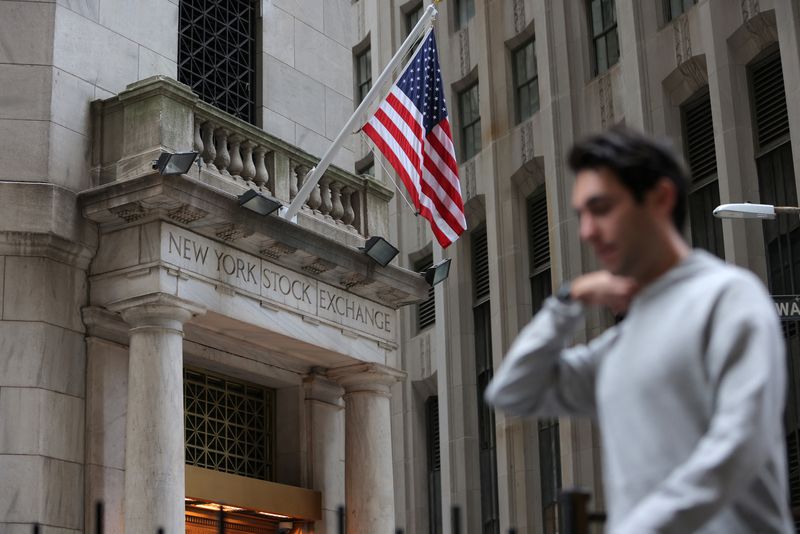On Friday, the equity market took a step back, concluding a week filled with ups and downs as Nvidia's (NASDAQ:NVDA) remarkable surge paused.
The week ended on a lower note for all three primary indices, with the S&P 500 dropping by 0.26%, and the Dow Jones Industrial Average and Nasdaq Composite decreasing by 0.93% and 1.17%, respectively. This downturn represented the Dow's worst week since October.
The pullback was primarily driven by a decline in NVDA shares, which fell more than 5.5% Friday, marking its most significant drop since late May.
Looking forward to the current week, it’s another important one, with the upcoming consumer price index (CPI) report expected to attract most of the attention.
Following a mixed jobs report on Friday, Nomura analysts expect February CPI data to show another strong print for core inflation.
“We expect core CPI inflation moderated only slightly to 0.368% m-o-m in February from a 0.392% rise in January,” analysts led by Aichi Amemiya said in a note.
“Our forecast implies a y-o-y change of 3.8% (3.772%), down from 3.9% in the previous month. Core goods became less of a drag in February as the decline in used vehicle prices likely moderated,” they added.
The latest Manheim wholesale used vehicle data for February indicates that the downward trend in retail used vehicle prices may continue to soften in the upcoming months, analysts continued.
Apart from the CPI, other important economic developments that will be closely scrutinized by analysts and investors include the Producer Price Index (PPI) and retail sales reports, and the latest initial jobless claims data.
Oracle, Adobe to report earnings this week
Analysts have shown a less pessimistic view towards S&P 500 companies' Q1 earnings compared to recent trends, yet companies themselves have issued more negative earnings forecasts for the quarter than usual, according to FactSet.
Consequently, current Q1 earnings estimates for the S&P 500 are below the expectations set at the quarter's outset. Despite this, the index is still on track to report year-over-year earnings growth for the third consecutive quarter.
The projected earnings growth rate for the S&P 500 in Q1 2024 stands at 3.4% year-over-year, FactSet noted in a report.
“If 3.4% is the actual growth rate for the quarter, it will mark the third consecutive quarter of year-over-year earnings growth for the index,” FactSet analysts said.
Regarding earnings forecasts, for Q1 2024, 74 companies within the S&P 500 have provided negative earnings per share (EPS) guidance as of Friday, while 32 companies have offered positive EPS guidance.
When it comes to revenues, analysts have revised their forecasts downward for the S&P 500 during the quarter. As of Friday, the index is expected to achieve a year-over-year revenue growth of 3.5%, a decrease from the 4.3% growth anticipated as of December 31.
Looking ahead, Wall Street is predicting year-over-year earnings growth rates of 9.0% for Q2 2024, 8.2% for Q3 2024, and 17.2% for Q4 2024. For the full calendar year 2024, the expected year-over-year earnings growth rate is 11.0%.
The forward 12-month price-to-earnings (P/E) ratio for the S&P 500 is 20.7, which exceeds the 5-year average of 19.0 and the 10-year average of 17.7. This ratio also surpasses the 19.5 P/E ratio noted at the end of the fourth quarter.
The most anticipated earnings reporters for this week are Oracle Corporation (NYSE:ORCL), Asana Inc (NYSE:ASAN), Kohl’s Corp (NYSE:KSS), Dollar Tree (NASDAQ: NASDAQ:DLTR), Dick’s Sporting Goods Inc (NYSE:DKS), Dollar General (NYSE: NYSE:DG), and Adobe Systems Incorporated (NASDAQ:ADBE), among others.
What analysts are saying about US stocks
JPMorgan: “The magnificent 7 are again this year driving the disproportionate share of returns, with a clear concern over how sustainable this is, but we note that this group of stocks is not trading increasingly more expensive, at least not in relative terms. In fact, Mag-7 stocks appear cheaper at present vs the rest of the market than they were trading on average in the past 5 years.”
Evercore ISI: “A 1H24 pullback remains our Strategy base case. Continue to be defensively positioned – outperform on Comm. Svcs., Cons. Stap., and Health Care and own option exposure for a blowoff, a selloff or both.”
Wedbush: “We firmly believe this tech bull market has the growth trends and valuations (looking into 2025 numbers) that will support the tech sector going higher in a soft landing backdrop with the Fed on a cut path starting likely this summer. As we see the spending/AI use cases in the field our conviction on our tech bull thesis is increasing in this 1995 Moment....NOT a 1999 Bubble Moment.”
BTIG: “While there are still plenty of constructive and timely charts, the argument against a broad rotation is that correlations are at all-time lows back to 2006. Therefore, if correlations are poised to rise, that suggests a more broad-based selloff may be near. While March came in strong like a bull, perhaps it will leave more like a bear, at least in the short-term.”
